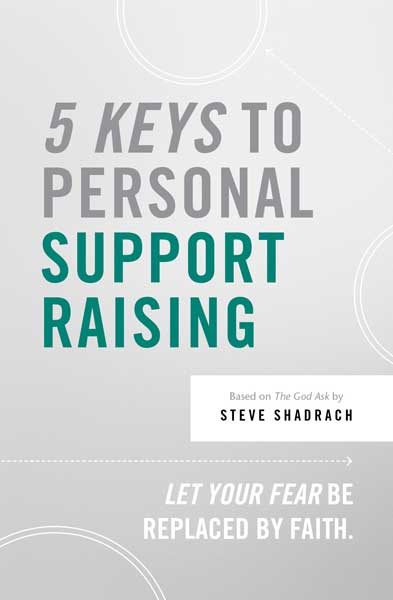In high school, I ran cross-country and track. Unlike football and soccer, where athletes must work together, running is more of an individual sport. One sport fosters independence, and the other dependence.
Raising personal support is like one of those sports that focuses upon the individual. By its nature, raising your support propels you into isolation. You can feel like you are on your own, and this saps your energy and motivation for working on your funding.
Our human nature is pulled toward independence. But as believers, we are to intentionally move from independence to dependence, from isolation to community.
Hebrews 10:24-25 (NIV) instructs us, “And let us consider how we may spur one another on toward love and good deeds. Let us not give up meeting together, as some are in the habit of doing, but let us encourage one another–and all the more as you see the Day approaching.” The writer acutely understands how vital it is to be connected with each other. Community creates a life-giving environment where we can push and encourage each other to persevere to do the right things.
Feeling alone and isolated while working on your support (or even thinking about it) is common to many Christian workers, so much so that some tend to procrastinate and ignore working on their funding. Some give it half-hearted attempts, but never fully get to the task of getting it done and getting to full support so they can freely minister to others.
Acknowledging our need to be connected to others while working on our support empowers the discouraged and turns procrastination brought about by fear into courage. Joining together in community with others acts as a catalyst for ideas. It helps you reject the lies of the enemy and embrace the truths of God. Community becomes a way for Christians to embrace that God created us to be dependent upon one another, not independent. And this can be powerful when applied to MPD (Ministry Partner Development).
For several years, we have been asking our coaches to create ways for their staff to come together in community to work on their support. Dave Dickens, one of the men on my leadership team who oversees MPD for our Campus Ministry, tells our staff, “Friends don’t let friends raise support alone.” Each week he practices this by facilitating a group of ten men who call themselves “The Fellowship of the Fully Funded.” They meet for about an hour where they discuss something from the Word, encourage each other from their MPD experiences, and share their MPD priorities, resources and best practices. They always pray for each other.
In other parts of our ministry, small groups are getting together for dinner once per week or per month. They share ideas over dinner, pray, and then individually work on their MPD. At the end, they come back together and over dessert share what each person accomplished.
Others are meeting in small groups by conference calls or in chat rooms to pray for each other and share about their MPD progress.
One new staff member summed up well how community in MPD works, “I think the biggest way in which the staff MPD Huddles have helped me is showing me that I’m not alone in this, and that my experience isn’t all that unique. It’s been nice to reconnect with friends from staff training, share how things are going, and give each other feedback.”
Community can fuel your enthusiasm for working on your support, or as Hebrews says, “spur one another on toward love and good deeds.”


